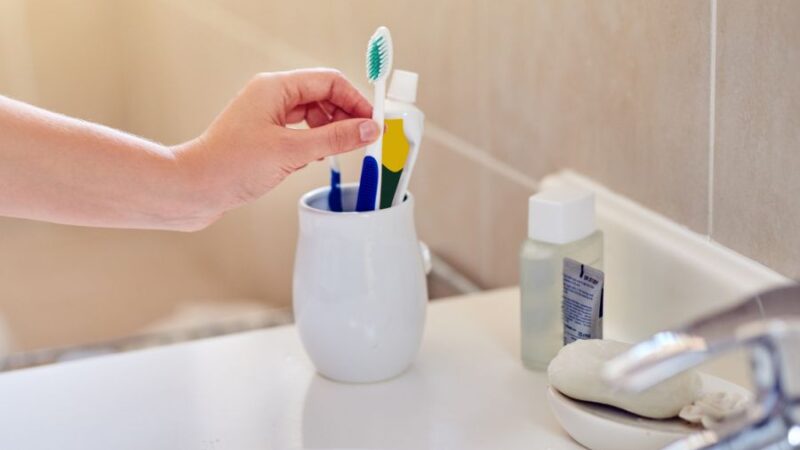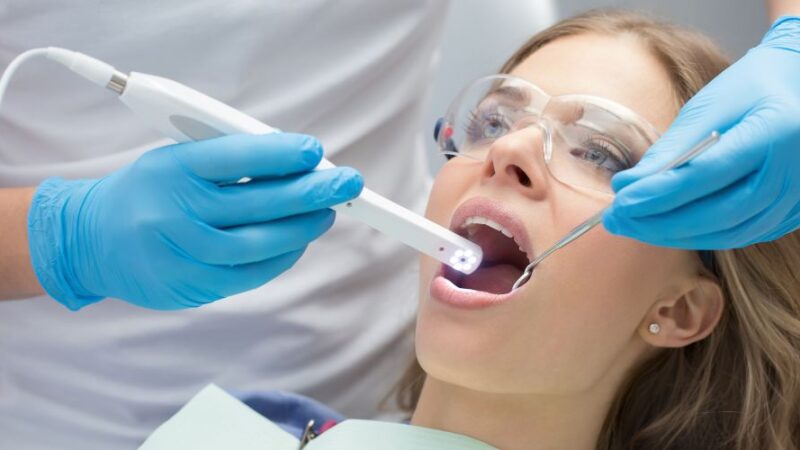Why Do I Have a Hole in My Gum

Your oral health is a delicate balance, and discovering a hole in your gum can be both puzzling and concerning. The appearance of such a phenomenon raises a myriad of questions about potential causes, implications, and the necessary steps to take.
A hole in the gums typically refers to a visible opening or depression in the soft tissue that covers the jawbone and surrounds the teeth. These holes can manifest for various reasons and may be indicative of underlying dental or oral health issues.
The presence of a hole in the gums may also be associated with oral piercings or, in the case of children or individuals with erupting wisdom teeth, a normal part of the tooth eruption process.
Why Is There a Hole in My Gums?

A hole in the gums can be caused by various factors, including:
- Tooth Decay: Cavities that develop on the surface of teeth may progress to the point of creating a hole in the adjacent gum tissue.
- Gum Disease: Advanced stages of gum disease, such as periodontitis, can lead to the formation of pockets and holes in the gums as the supporting structures of the teeth deteriorate.
- Abscessed Tooth: An infection at the root of a tooth can result in the formation of a pocket of pus, which may cause a hole in the surrounding gum tissue.
- Injury or Trauma: Physical trauma or injury to the gums can lead to the development of holes.
- Piercings: Oral piercings, if not properly cared for, can cause infections that may lead to the formation of holes in the gum tissue.
Symptoms of Hole in Gums
The presence of a hole in the gums may be accompanied by various symptoms, indicating an underlying dental issue. Common symptoms include:
- Pain or Discomfort: Pain around the area of the hole is a common symptom. It may range from mild to severe, depending on the cause.
- Swelling and Inflammation: The gums around the hole may appear swollen and red, indicating an inflammatory response to an underlying issue.
- Bleeding: Bleeding from the hole or the surrounding gums, especially during activities like brushing or eating, can occur.
- Bad Breath (Halitosis): The presence of an infection associated with the hole may lead to bad breath.
- Pus Formation: In cases of infection, there might be the formation of pus, which can be observed around the hole.
- Increased Sensitivity: Sensitivity to hot or cold temperatures, as well as pressure, may be experienced around the affected area.
- Visible Decay or Damage: If the hole is a result of tooth decay, it may be accompanied by visible signs of decay on the affected tooth.
- Changes in Gum Appearance: The gums around the hole may look irregular, and there might be a noticeable change in the overall appearance of the affected area.
Treatments for Hole in Gums

The treatment for a hole in the gums depends on the underlying cause. Here are common treatments for various causes:
- Dental Fillings: Dentists may use dental fillings to restore the affected tooth, preventing further decay and addressing the hole.
- Root Canal Treatment: A root canal procedure may be necessary to remove infected pulp, clean the root canal, and seal the tooth, preventing the spread of infection.
- Periodontal Treatment: Scaling and root planing, or in severe cases, surgical intervention, to address gum disease and promote healing.
- Antibiotics: Antibiotics may be prescribed to eliminate the infection, especially if there is swelling, pus formation, or signs of systemic involvement.
- Oral Surgery: Oral surgery may be required to repair damaged tissues and close the hole.
- Improving Oral Hygiene: Dentists may emphasize the importance of proper brushing, flossing, and regular dental check-ups to improve oral health and prevent further issues.
- Treatment for Gum Abscess: Draining the abscess and addressing the underlying infection, often through a combination of antibiotics and dental procedures.
Check here List of Best Dentists Bakersfield California
Prevention Tips

Preventing the development of a hole in the gums involves maintaining good oral hygiene and adopting healthy habits. Here are key preventive measures:
- Regular Dental Check-ups: Schedule routine dental visits for professional cleanings and check-ups. Early detection of issues can prevent the development of holes in the gums.
- Effective Oral Hygiene Practices: Brush your teeth twice a day using fluoride toothpaste and a soft-bristle brush. Floss daily to remove plaque and prevent gum disease.
- Healthy Diet: Consume a balanced diet rich in vitamins and minerals to support overall oral health. Limit sugary and acidic foods, as they contribute to tooth decay.
- Avoid Tobacco Products: Smoking and tobacco use are major risk factors for gum disease. Quitting or avoiding these habits can significantly improve gum health.
- Limit Alcohol Consumption: Excessive alcohol consumption can contribute to poor oral health. Moderation is key to preventing dental issues.
- Protect Teeth from Injury: Wear a mouthguard during activities that pose a risk of dental injury, such as contact sports. This can prevent trauma that may lead to holes in the gums.
- Proper Oral Piercing Care: If you have oral piercings, follow strict hygiene practices. Regularly clean the piercing and avoid activities that may damage the gums or teeth.
- Manage Stress: Chronic stress can impact oral health. Practice stress-reducing activities, such as exercise or meditation, to promote overall well-being, including oral health.
- Prompt Attention to Dental Issues: If you notice any signs of dental problems, such as tooth sensitivity, bleeding gums, or pain, seek prompt dental attention. Early intervention can prevent the progression of issues that may lead to holes in the gums.
- Educate Yourself: Stay informed about proper oral care and hygiene practices. Understanding the importance of maintaining oral health can empower you to make informed choices.
- Fluoride Use: Use fluoride toothpaste and consider fluoride treatments, as fluoride helps strengthen tooth enamel and prevent decay.
While the presence of a hole in your gums may evoke worry, understanding the potential causes and taking proactive steps toward preventive measures and professional dental care can contribute to maintaining optimal oral health. Most cases of gum holes can be effectively treated with the right interventions, allowing your mouth to return to normal with proper care and attention.






